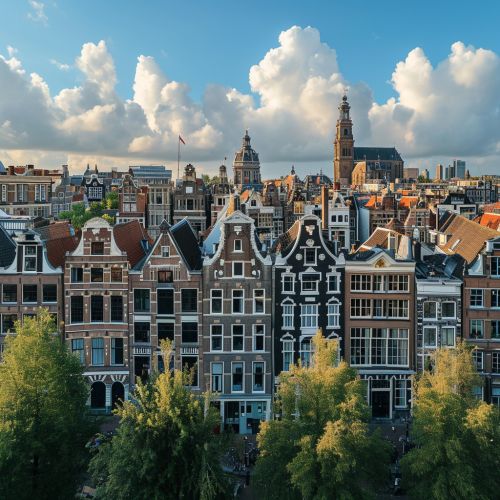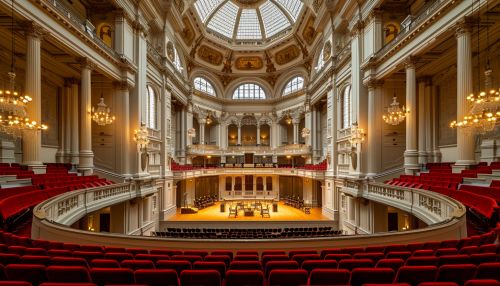Culture of Amsterdam
History
Amsterdam, the capital of the Netherlands, has a rich and diverse cultural history that has evolved over centuries. The city's culture is deeply rooted in its history, which dates back to the 13th century when it was established as a small fishing village. Over the centuries, Amsterdam has grown into a vibrant and cosmopolitan city, renowned for its unique blend of historical charm and contemporary culture.


The city's cultural evolution can be traced back to the Golden Age of Dutch Art, a period in the 17th century when Amsterdam became one of the wealthiest cities in the world. This period saw a surge in the city's cultural and artistic development, leading to the establishment of several renowned institutions, such as the Rijksmuseum and the Royal Palace of Amsterdam. The influence of this era is still evident in the city's architecture, art, and cultural institutions.
Art and Museums
Amsterdam is home to a number of world-class museums and art galleries that showcase the city's rich cultural heritage. The city's museum district, known as the Museumplein, houses some of the most renowned museums in the world. These include the Rijksmuseum, the Van Gogh Museum, and the Stedelijk Museum, which collectively hold an extensive collection of artworks from various periods and styles.
The Rijksmuseum, one of the most visited museums in the Netherlands, houses a vast collection of artworks from the Dutch Golden Age. The museum's collection includes masterpieces by artists such as Rembrandt, Vermeer, and Frans Hals. The Van Gogh Museum, on the other hand, is dedicated to the works of Vincent van Gogh and his contemporaries. The museum houses the largest collection of Van Gogh's paintings and drawings in the world.


Architecture
Amsterdam's architecture is a reflection of its cultural history. The city's architectural landscape is characterized by its iconic canal houses, which were built during the Golden Age. These houses, with their ornate gables and narrow facades, are a testament to the city's historical wealth and prosperity.
In addition to its historical architecture, Amsterdam is also known for its modern and contemporary architecture. The city is home to several notable modern architectural landmarks, such as the EYE Film Institute Netherlands and the NEMO Science Museum, which showcase the city's innovative architectural design.
Music and Performing Arts
Amsterdam has a vibrant music and performing arts scene, with a wide range of venues that cater to a variety of musical tastes and styles. The city is home to the Royal Concertgebouw Orchestra, one of the world's leading orchestras, and the Dutch National Opera, which is renowned for its innovative productions.
The city also hosts several music festivals throughout the year, such as the Amsterdam Dance Event, the world's largest club festival, and the Amsterdam Music Festival, which showcases a range of musical genres.


Cuisine
Amsterdam's cuisine is as diverse as its culture. The city's culinary scene is influenced by its multicultural population, resulting in a wide range of international cuisines. However, traditional Dutch cuisine also plays a significant role in the city's food culture. Signature dishes such as herring, stroopwafel, and bitterballen are popular among locals and tourists alike.
Festivals and Events
Amsterdam hosts a number of cultural festivals and events throughout the year, which contribute to the city's vibrant and dynamic culture. These events range from music and film festivals to cultural celebrations and art fairs. Some of the most notable events include the King's Day, the Amsterdam Gay Pride, and the Amsterdam Light Festival.
